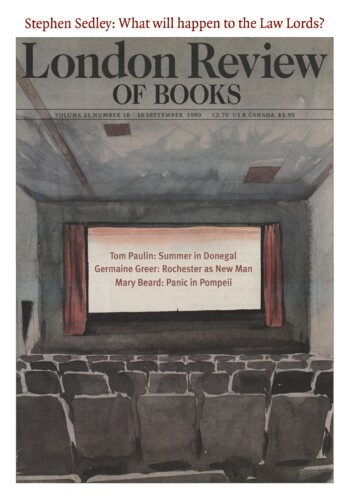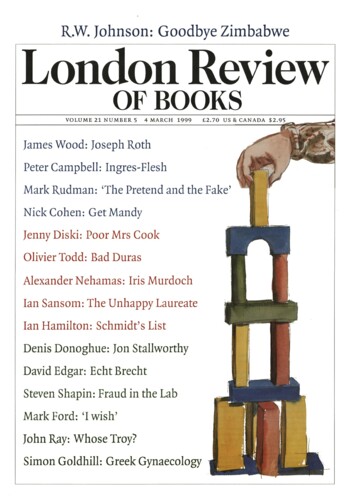Two Poems
Mark Ford, 6 January 2000
in his plans, but briefly, as a cupped hand holds water, or as private and public spheres collide
and blur, overlap within his fragile, omnivorous stare. Barely awake, dazed and blinking, I was urged under
solemn oath to consider the lilies of the field who neither toil nor spin. Hallelujah, I meant to answer, selah, only
a seething, surf-like roaring in my ears seemed to engulf...





